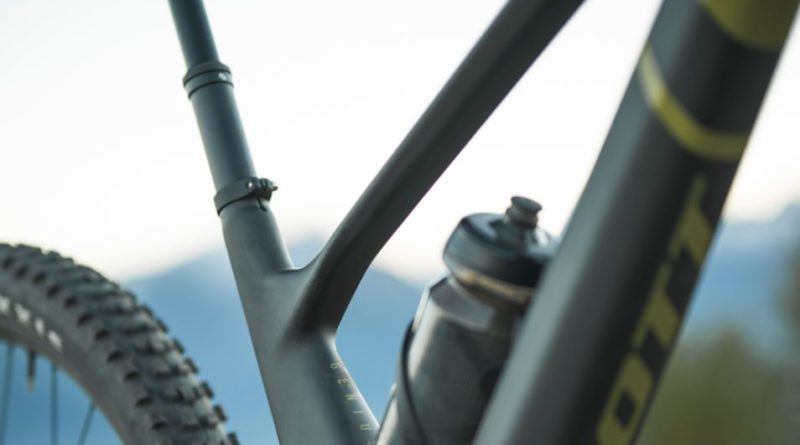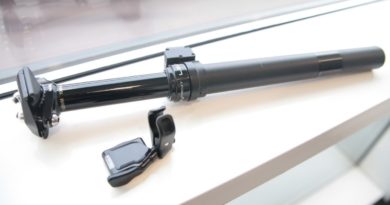UCI announces participation in Carbon Fibre Circular Alliance
The UCI has announced that, as part of its sustainability efforts, it will participate in the Carbon Fibre Circular Alliance, aiming to reduce waste and pollution generated from the manufacturing and use of carbon fibre.
With most high end bikes manufactured from carbon fibre, and the material used extensively throughout the sports industry, this comes with considerable consequences for the environment:
- The sports industry is the 3rd largest global user of carbon fibre
- Most carbon fibre sports equipment has an average 3-year lifespan
- 90% of end-of-life carbon fibre equipment ends up in landfill.
To address the negative impact of carbon fibre use, the Union Cycliste Internationale (UCI) is part of the award-winning Carbon Fibre Circular Alliance, promoting industry efforts to reduce waste and pollution and participate in cross-sector collaborations for circular innovation.
The UCI’s partnership with the Alliance is in line with the UCI Agenda 2030, which places much emphasis on sustainable development and facing the challenges of climate change.
The Carbon Fibre Circular Alliance
Circular innovation rethinks how manufacturers produce and end users consume things seeking to optimise natural resources and limit the waste of raw materials, water and energy. The Carbon Fibre Circular Alliance was officially launched on the 22nd of April 2022 with the announcement of a ground-breaking collaboration of International Federations, leading sports manufacturers, composite specialists, and academics to support a demonstration project to reuse and realign carbon fibres.
Managed and coordinated by the World Sailing Trust, the Carbon Fibre Demonstration Project included the Union Cycliste Internationale, International Biathlon Union, World Sailing, International Tennis Federation and four equipment manufacturers. The UCI brought onboard SCOTT Sports as a bike equipment partner due to Scott’s decade-long support of the UCI World Cycling Centre and solidarity programmes with equipment.
Demonstration project: From bike to ski
 For Andrew Goodman, CSR Manager at Scott Sports SA, the Carbon Fibre Demonstration Project perfectly aligned with Scott’s aim to maximise their products’ sustainability while maintaining their high-performance level through innovation, technology and design.
For Andrew Goodman, CSR Manager at Scott Sports SA, the Carbon Fibre Demonstration Project perfectly aligned with Scott’s aim to maximise their products’ sustainability while maintaining their high-performance level through innovation, technology and design.
Scott Sports worked with technical Lead Lineat Composites and supporting research from the University of Bristol, to show how it is possible to reclaim broken/failed carbon components through a novel reclamation process that realigns the fibres into uni-directional tapes utilising the innovative HiPerDiF process system.
Recycling carbon fibre is a two-step process that involves getting the fibres out of a broken component, then realigning those carbon fibres. Lineat composites chop the carbon fibre into small pieces before sending them to a reclaimer, where dried carbon fibres are returned as a fluffy material. The next stage is like a “high tech paper-making process” where the carbon fibre is mixed in water and then put through a machine and sprayed between parallel plates, a procedure that aligns the fibres into a long continuous tape.
Scott Sports provided Lineat Composites with an end-of-life bike frame and forks for reclamation. They then successfully tested the recycled carbon fibre tape, known as AFFT tape (Aligned Fibre Formable Technology), to build a prototype ski using the realigned carbon fibres. The demonstration project has shown that carbon fibre from sports equipment can be recycled and reused in perpetuity.
Critical appraisal
 Of the UCI announcement, Shaun Scallan, a 30 year veteran in the fields of sustainability and renewable energy, comments, “Here is a thought. Let’s ban carbon fibre. It is a nightmare to recycle. Then everyone has to compete using only sporting equipment that can be readily recycled. It’s called ‘Avoid’ on the waste hierarchy. If we stop making stuff we can’t readily recycle then we don’t have to build an industry to undo non circular economy design.”
Of the UCI announcement, Shaun Scallan, a 30 year veteran in the fields of sustainability and renewable energy, comments, “Here is a thought. Let’s ban carbon fibre. It is a nightmare to recycle. Then everyone has to compete using only sporting equipment that can be readily recycled. It’s called ‘Avoid’ on the waste hierarchy. If we stop making stuff we can’t readily recycle then we don’t have to build an industry to undo non circular economy design.”
“We should, of course, look at the glues and other components we use that make carbon fibre non-recyclable and re-engineer those as another option.”
“Reclaiming fibres is good, but the whole premise is about outperforming our humanity. A carbon fibre bike allows us to get better times. Not because of our ability but because of the increase in kinematic efficiency which results in better times. Better times through technology, for what point really? I would argue better times solves no pressing problems for humanity so is inherently pointless. I would argue that it is the competition between competitors that is the source of inspiration we gain from sport not the result of technological enhancements.”
Photo: © Scott Sports/Roo Fowler



